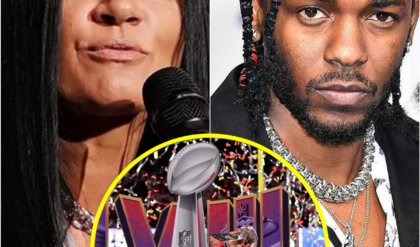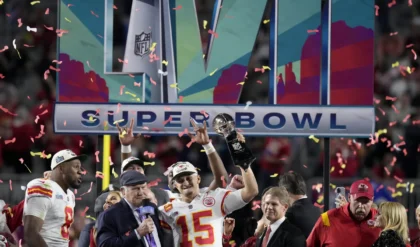The Great Divide: Examining Political Hypocrisy and Accountability in the U.S.
The discourse surrounding U.S. politics continues to intensify as polarized viewpoints dominate the national stage.
A recent clash between political commentator Charlamagne Tha God and The View co-hosts encapsulates the broader conversation about perceived double standards, particularly in relation to President Joe Biden and his administration’s actions.
This incident, set against the backdrop of ongoing debates about accountability and ethics, serves as a microcosm of the fractured state of political dialogue in America.
The Central Debate: Pardoning Hunter Biden
One of the most contentious topics in the discussion is President Biden’s reported consideration of pardoning his son, Hunter Biden. Critics from both sides of the political spectrum argue that such an act contradicts Biden’s earlier stance on the impartiality of the Department of Justice (DOJ).
Throughout his presidency, Biden has consistently emphasized that “no one is above the law,” a principle that has been central to Democratic rhetoric. However, the possibility of pardoning Hunter, who faces allegations of tax fraud and gun-related charges, raises questions about whether this principle applies uniformly.
Charlamagne, a frequent critic of political hypocrisy, voiced these concerns during a recent appearance on The View. He highlighted how Democrats often position themselves as champions of morality and justice, only to falter when similar scrutiny is directed at their actions.
“Democrats stand on this moral high ground all the time,” Charlamagne remarked. “But they act so self-righteous that they can’t see when they’re falling short of their own standards.”

Media Responses and Partisan Bias
The discussion on The View became heated as the co-hosts, notably Whoopi Goldberg and Sunny Hostin, attempted to defend Biden’s potential actions. Goldberg suggested that Biden may have changed his mind over time, possibly out of frustration with the broader political landscape. “At some point, you just go, ‘Why am I always playing by the rules when everyone else isn’t?’” Goldberg argued.
This defense, however, appeared insufficient to Charlamagne, who pointed out the inconsistency in the hosts’ criticism of former President Donald Trump.
He noted that Trump’s perceived abuses of power were met with widespread condemnation from the same individuals now excusing Biden’s actions. “If Trump had done this for one of his kids, you’d be calling him a liar and a hypocrite,” Charlamagne said. “But when it’s Biden, there’s always an excuse.”
Such exchanges highlight the broader issue of partisan bias in American media and politics. Public figures often align themselves so closely with their chosen political “team” that they fail to apply consistent standards of accountability. This tribalism fosters a culture where actions are judged not on their merit but based on who commits them.
Public Perception and Implications for Biden
The controversy surrounding Hunter Biden isn’t just a media issue—it’s a political liability for the President. Many Democrats expected Biden to embody the ethical standards they criticized Trump for lacking. By even entertaining the idea of pardoning his son, Biden risks alienating his base and undermining his credibility.
For Republicans, the issue provides ample fodder to accuse Biden of double standards. They argue that the DOJ, under Biden’s administration, has treated Hunter with leniency compared to the aggressive pursuit of Trump and his allies. The perceived discrepancy fuels claims that Democrats only champion accountability when it suits their political interests.
The Broader Issue: Political Tribalism
The exchange between Charlamagne and The View hosts also speaks to a deeper problem in U.S. politics: the tendency to view political parties as sports teams. As Charlamagne noted, this mentality often leads people to defend indefensible actions simply because they align with their side.
“When it comes to politics, we’ve turned these parties into teams,” Charlamagne said. “It’s like being a fan of the Dallas Cowboys. No matter how bad they play, their fans will say, ‘We’re going to the Super Bowl.’ But politics isn’t a game—it’s real life, and it affects people’s lives.”
This “team mentality” stifles meaningful dialogue and creates an environment where accountability is conditional. Democrats and Republicans alike are guilty of this behavior, as both sides often deflect criticism by pointing to the faults of the other.

Conclusion: A Call for Consistency
The controversy over Hunter Biden’s potential pardon underscores the need for consistency in political ethics. If Democrats are to maintain their moral authority, they must apply the same standards to their own leaders as they do to their opponents. Similarly, Republicans must address their own history of overlooking ethical breaches within their ranks.
Political discourse in America can only improve when partisanship is set aside in favor of principle. As Charlamagne aptly pointed out, true accountability requires recognizing when your side is in the wrong. Until both parties embrace this mindset, the cycle of hypocrisy and division will continue to erode public trust in government institutions.
This moment offers an opportunity for reflection—not just for politicians but for the public as well. If voters demand consistency and reject tribalism, they can help create a political landscape where ethics and accountability take precedence over party loyalty. Whether leaders will rise to meet this challenge remains to be seen.






